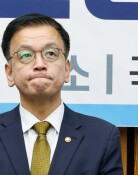Doctors end work stoppage amid ongoing medical crisis
Doctors end work stoppage amid ongoing medical crisis
Posted June. 26, 2024 07:55,
Updated June. 26, 2024 07:55
Following the suspension of medical services by Seoul National University’s medical school professors and the Korea Medical Association's decision to end their indefinite strike, faculty members from major medical schools are now resuming work. This decision comes as the indefinite strike was causing significant harm to patients without achieving its goal of changing the government's policy on increasing medical school quotas. Catholic University Medical School professors held a general meeting on Tuesday and decided to delay their indefinite strike. Professors at Yonsei University are expected to announce a similar decision soon, reversing their initial plan for an indefinite work stoppage.
The resumption of work by doctors at major university hospitals is likely to alleviate patient concerns. Still, the medical crisis, which began over four months ago with the government's plan to increase medical school quotas, remains critical. Only 8 percent of the 9,600 trainee doctors who left have returned. Teaching hospitals are facing severe financial difficulties, medical staff are exhausted, and research activities have stalled. This situation threatens the production of specialist doctors, public health doctors, and military surgeons needed to meet demand. If medical students do not return, 3,000 first-year preparatory course students and 4,500 new students will have to share classes for at least six years, undermining the quality of medical education and producing inadequately trained doctors.
As doctors show a willingness to compromise, the government must offer a constructive resolution to the crisis. The priority is to ensure the return of trainee doctors, who are crucial to resolving the medical crisis. Administrative penalties, such as license suspensions for trainee doctors, must be retracted to encourage their return without fear of being labeled "betrayers." Easing the return standards for those considering resignation will also help. Trainee doctors must be allowed to return first to set an example for medical school students.
The government must clearly communicate its stance on adjusting medical school quotas and ensure that next year’s admission process proceeds smoothly. While the quota increase is necessary to revitalize regional medicine, the policy must be negotiable. Patients' groups have noted that the government's focus on the number "2,000" is too rigid and that the medical community's concerns are valid. With the government’s plan to establish an expert committee to assess the supply and demand of doctors, medical professionals must actively participate in developing a reasonable policy for medical school expansion and doctor training.







